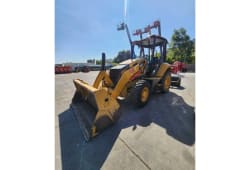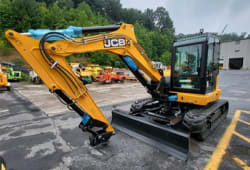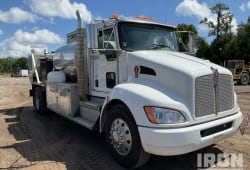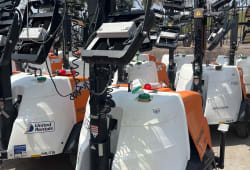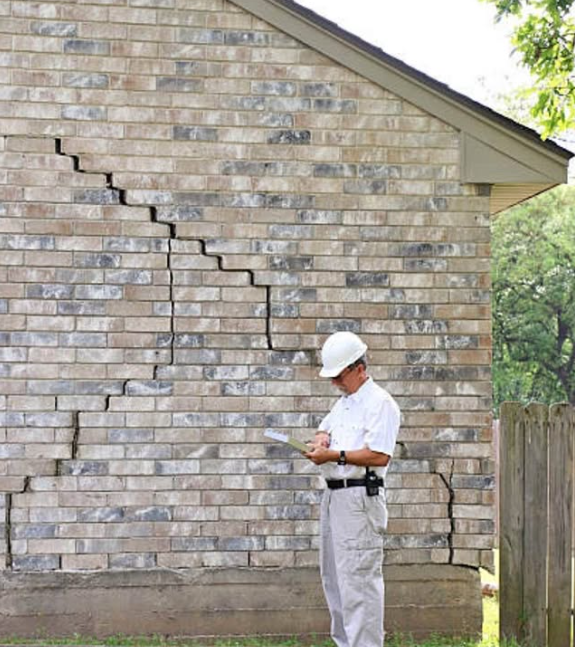Revolutionizing Modern Transport with Specialty Trucks
10 Lectura mínima
)
enero 20, 2024
In the ever-evolving landscape of modern transportation, the role of specialty trucks has become increasingly vital. These purpose-built vehicles serve a myriad of industries and functions, providing customized solutions that go beyond the capabilities of standard transportation options. From specialized equipment to unique design features, a specialty truck plays a crucial role in shaping the way goods are transported, services are delivered, and challenges are overcome.
Custom Solutions for Unique Challenges
Unlike conventional trucks, these trucks are engineered to meet specific challenges and demands within various industries. Whether it's navigating challenging terrains, transporting oversized cargo, or providing specialized services, these vehicles offer tailored solutions that enhance efficiency and productivity. For instance, off-road trucks are designed to navigate rough landscapes, while refrigerated trucks ensure the safe transportation of perishable goods.
Driving Innovation in Design and Engineering
The world of these kinds of trucks is a hotbed of innovation in design and engineering. Manufacturers leverage cutting-edge technologies to create vehicles that not only meet industry standards but often exceed them. The incorporation of advanced materials, aerodynamics, and state-of-the-art systems ensures that specialty trucks are at the forefront of technological progress, setting new benchmarks for performance, safety, and environmental sustainability.
Versatility Across Industries
One of the key strengths of such trucks is their versatility across a wide range of industries. From construction and agriculture to emergency services and entertainment, these vehicles are tailored to meet the unique demands of each sector. Tow trucks, for example, are crucial in the automotive industry, while fire trucks are essential for emergency response teams. This adaptability underscores the importance of specialty trucks in facilitating diverse aspects of our daily lives.
Enhancing Efficiency and Productivity
These advanced trucks are designed with a singular focus on enhancing efficiency and productivity in their respective applications. Whether it's through increased load capacity, improved fuel efficiency, or specialized features such as hydraulic lifts or cranes, these trucks are finely tuned to perform specific tasks with precision. As a result, industries that rely on these trucks experience streamlined operations, reduced downtime, and ultimately, improved bottom lines.
Meeting Environmental and Regulatory Standards
With a growing emphasis on environmental sustainability, specialty truck manufacturers are increasingly incorporating eco-friendly technologies into their designs. From hybrid and electric options to emissions-reducing systems, these trucks are aligning with global efforts to reduce the carbon footprint of transportation. Additionally, adherence to stringent safety and regulatory standards ensures that specialty trucks not only excel in performance but also prioritize the well-being of operators and the general public.
These trucks have emerged as indispensable assets in modern transportation. Their ability to offer customized solutions, drive innovation, adapt to diverse industries, enhance efficiency, and meet environmental standards positions them as key players in shaping the future of transportation. As industries continue to evolve, the importance of these trucks is destined to grow, ensuring that these purpose-built vehicles remain at the forefront of progress in the ever-changing world of transportation.
Customization and innovation in specialty truck design.
The realm of specialty truck design is a dynamic landscape where customization and innovation converge to create purpose-built vehicles that go beyond the ordinary. From unique functionalities to cutting-edge technologies, the fusion of customization and innovation is driving the evolution of specialty trucks, ensuring they meet the diverse and specialized needs of various industries.
Customization: Designing for Specific Needs
Industry-Specific Adaptations: Speciality trucks are crafted to cater to the distinct requirements of various industries. Whether it's agriculture, construction, emergency services, or entertainment, customization ensures that each truck is equipped with features that optimize its performance within a specific sector.
Payload and Equipment Customization: Payload requirements vary widely across industries. Specialty trucks are designed with customizable cargo spaces, allowing for the efficient transport of everything from heavy machinery to delicate equipment. Customized features such as cranes, lifts, and compartments further enhance the versatility of these vehicles.
Chassis Configurations: The chassis of these trucks can be tailored to different configurations, accommodating various load capacities, wheelbases, and axle setups. This customization allows for optimal weight distribution, stability, and maneuverability based on the specific demands of the intended application.
Innovation: Pushing the Boundaries of Design
Advanced Materials: Innovation in specialty truck design involves the incorporation of advanced materials, such as lightweight alloys and composite structures. This not only enhances durability but also contributes to fuel efficiency and overall performance.
Telematics and Connectivity: Speciality truck is integrating telematics and connectivity solutions. These innovations enable real-time tracking, remote diagnostics, and data-driven insights, fostering improved fleet management, maintenance, and operational efficiency.
Autonomous Features: The integration of autonomous technologies in specialty truck design is on the rise. Automation enhances safety, optimizes fuel consumption, and allows for precise and consistent operation, especially in applications like mining, agriculture, and logistics.
Environmental Considerations: Innovations in specialty truck design often include a focus on environmental sustainability. This involves the development of eco-friendly powertrains, emissions reduction technologies, and adherence to stringent environmental standards.
The Synergy of Customization and Innovation
User-Centric Design: Customization, when paired with innovation, results in user-centric designs. Manufacturers collaborate closely with end-users to understand their specific needs, ensuring that the final product aligns seamlessly with the operational requirements and preferences of the intended users.
Efficiency and Performance: The synergy of customization and innovation yields specialty trucks that not only meet specific requirements but also surpass performance expectations. Efficiency gains, reduced downtime, and enhanced safety are common outcomes of this harmonious blend.
Future Trends and Challenges
Electrification: The shift towards electrification is a prominent trend in specialty truck design. Electric powertrains offer not only reduced environmental impact but also new possibilities for design and functionality.
Adapting to Emerging Technologies: Keeping pace with rapid technological advancements, including artificial intelligence, machine learning, and robotics, presents both a challenge and an opportunity for specialty truck designers. Staying at the forefront of these innovations is essential for continued relevance and competitiveness.
In the dynamic world of specialty truck design, the interplay between customization and innovation is reshaping the landscape. As industries continue to evolve and demand specialized solutions, the customization of features and the integration of cutting-edge technologies will remain pivotal in creating purpose-built vehicles that excel in efficiency, performance, and environmental sustainability. The future promises even greater advancements, further solidifying specialty trucks as indispensable assets in a wide array of sectors.
Specialty trucks for emergency services and disaster response
In times of crisis and calamity, the swift and effective response of emergency services is paramount. Specialty trucks designed for emergency services and disaster response play a pivotal role in providing critical support, rescue operations, and logistical solutions. This article delves into the specialized features, functions, and crucial role these purpose-built vehicles play in mitigating the impact of emergencies and disasters.
1. Mobile Command Centers
Functionality: Speciality trucks serve as mobile command centers, equipped with advanced communication systems, satellite technology, and a myriad of monitoring tools. These vehicles act as the nerve center for coordination and decision-making during emergencies.
Features:
Satellite communication
GIS (Geographic Information System) mapping
Real-time data streaming
Interagency communication systems
2. Search and Rescue Vehicles
Functionality: Specialized trucks for search and rescue operations are designed to navigate challenging terrains and provide a platform for rescue teams to conduct operations efficiently.
Features:
All-terrain capability
Hydraulic lifts and cranes
Rescue equipment storage
Thermal imaging cameras
3. Ambulance and Medical Response Units
Functionality: Speciality truck in medical response are equipped to provide emergency medical care, transport patients, and serve as field hospitals in disaster-stricken areas.
Features:
Medical equipment and supplies
Emergency medical staff facilities
Life support systems
Isolation units for contagious diseases
4. Firefighting and Hazard Response Vehicles
Functionality: Specially designed trucks for firefighting and handling hazardous materials are essential for containing and extinguishing fires, as well as managing chemical spills or other dangerous incidents.
Features:
High-capacity water pumps
Foam and chemical suppressants
Specialized firefighting gear
Hazardous material containment
5. Mobile Evacuation Units
Functionality: Speciality outlined trucks designed for mass evacuations are equipped to transport large numbers of people safely away from disaster areas.
Features:
Spacious interiors with seating
Emergency exits and safety measures
Communication systems for coordination
Basic necessities for evacuees
6. Utility and Repair Trucks
Functionality: In the aftermath of disasters, utility and repair trucks are deployed to restore essential services, repair infrastructure, and ensure the rapid recovery of affected areas.
Features:
Power generators
Tools and equipment for repairs
Portable water supply systems
Rapid deployment capabilities
7. Communication and Broadcasting Units
Functionality: This kind of truck is equipped for communication and broadcasting play a crucial role in disseminating information to the public during emergencies.
Features:
Broadcasting equipment
Antennas for signal amplification
Satellite uplink capabilities
Emergency alert systems
Final Words
Speciality trucks designed for emergency services and disaster response are the unsung heroes in times of crises. Their adaptability, advanced features, and specialized functionalities enable first responders and relief organizations to effectively navigate the challenges posed by emergencies and disasters. As technology continues to advance, these purpose-built vehicles will play an increasingly integral role in safeguarding communities and saving lives during times of need.
The ongoing revolution in speciality truck transportation represents a paradigm shift in the way industries approach the movement of goods and services. The intersection of customization and innovation has given rise to purpose-built vehicles that transcend traditional transportation norms, catering to specific needs with unparalleled precision and efficiency. From advanced materials and autonomous features to industry-specific adaptations, speciality trucks are at the forefront of technological progress, shaping a future where logistics are not just a means to an end but a finely tuned orchestration of tailored solutions.

Caleb Woods is an experienced content specialist and an editor at Boom & Bucket, blending his journalism background with expertise in the heavy equipment industry. He delivers engaging, informative content to help professionals stay informed and make smarter decisions in the machinery market.




